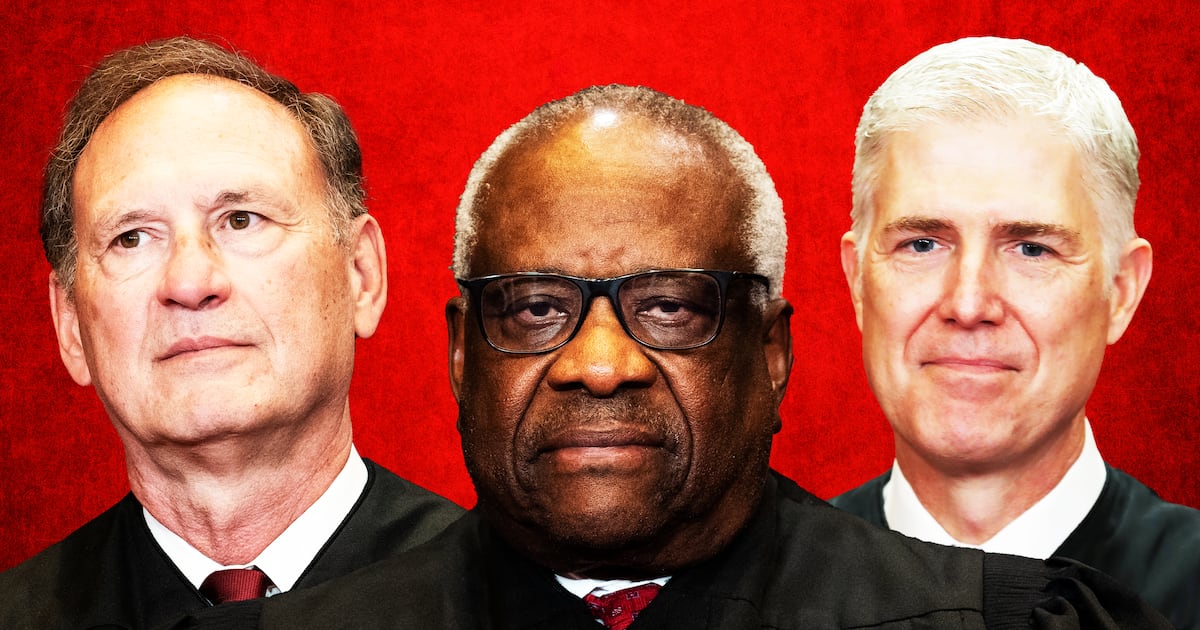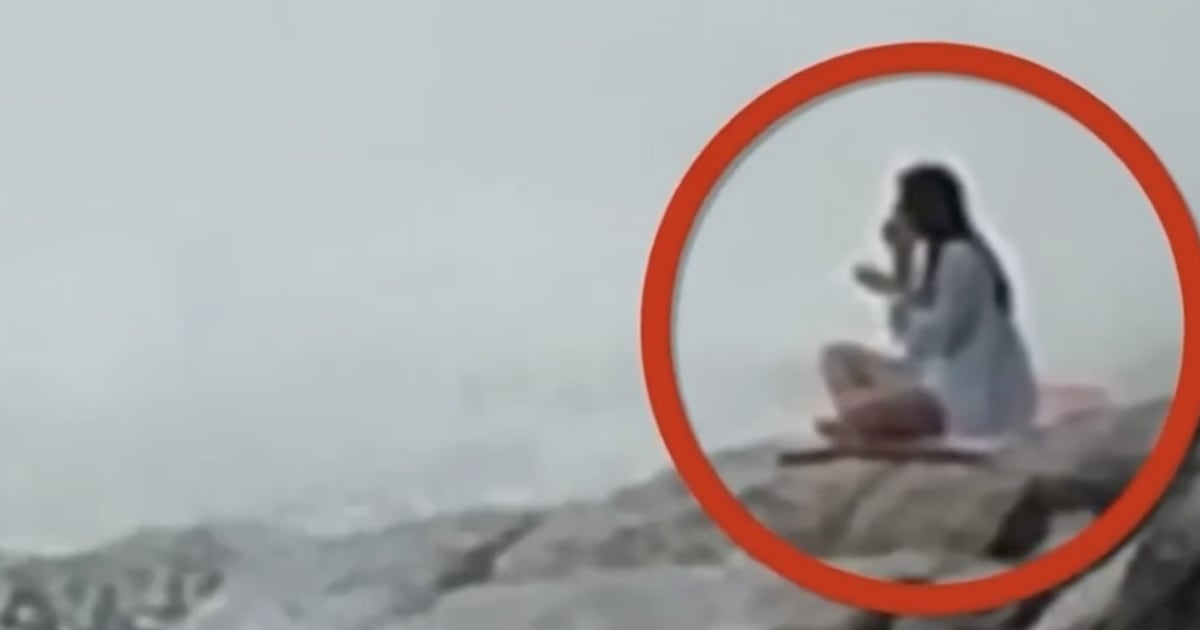Natalie Mering, aka Weyes Blood, knows you all made memes out of her lyric “Sitting at this party, wondering if anyone knows me, really sees who I am.” She’s seen the “they don’t know” party memes. She loves them all.
Though the song that contains that lyric, “It’s Not Just Me, It’s Everybody,” wasn’t meant to be memefied, nor was it inspired by that specific viral image, Mering understands the purpose behind these niche internet jokes. “It’s our coping mechanism. In some ways it’s our best shot at trying to make sense of everything,” she says on a Zoom call ahead of the release of her fifth studio album, And In the Darkness, Hearts Aglow.
In reality, the album’s lead single is a Buddhist anthem about the interconnectivity among people as we all emerge from isolation, trying to untangle the mess of the last few years of our lives. How can we learn to rely on each other again after being separated for years, forced into cocoons amid the pandemic?
ADVERTISEMENT
The rest of her new album, which drops today, similarly yearns for attachment in a time when face-to-face relationships are increasingly rare. And In the Darkness, Hearts Aglow is a subterranean romance novel, Mering tells me, with influences ranging from Stevie Wonder to Joni Mitchell. Buddhism inspired not only the first track, but also aided her creative process while she produced the entire album.
“I’m really into the concepts of grace and salvation, and I felt like Buddhism helps to accept everything, including the darkest, most negative aspects of reality,” the 34-year-old singer-songwriter says. “I’d love to assume that the universe definitely tends to be more benevolent. But you can’t pretend that it’s just supposed to be completely rosy and perfect and utopian.”
Below, Mering chats with The Daily Beast about her love of film (including her cover of Linda Ronstadt’s “You’re No Good” for the Minions: The Rise of Gru soundtrack), her iconic tweets, and how she hopes her album can potentially soothe our collective hopelessness.
How was the Freaky Movie Weekend event that you recently hosted in NYC?
It was just so great to do a Q&A, because it’s rare that I get to interact with my fans like that and talk about something that’s on the more intellectual side of things. I also felt a little bad for my fans that weren’t prepared for how weird Possession was, but I think that was ultimately funny in the end.
Would you consider working in film?
For sure. I’ve always wanted to, and I’ve directed a lot of my own music videos, so I feel like I could. It’s just a matter of: the ship is going one direction, and that’s very musical. I would have to find a good pocket of time to really switch gears, but it’s a big dream of mine for sure.
Do you have any specific film genres you’d want to work with?
It would be abstract, absurdist vibes. Nothing too realistic. I don’t think I’m going to make a horror film like everybody else. It would be, like, an Alejandro Jodorowsky rom-com.

With both film and music, who are some creators that you’ve been getting into recently?
I just saw Triangle of Sadness. That was amazing. Really intense vibes. I really liked Annette, Leos Carax’s musical, and I know not a lot of people like that. But that really inspired me.
How did the Minions: The Rise of Gru soundtrack land on your desk?
Jack Antonoff is a friend and he invited me to do that. At the time, it just felt like just doing another cover song with a pal. I had never seen a Minions movie. I didn’t realize that they were the form of our times. It was really psychedelic and interesting, but going into it, I just assumed it was just this weird dopey thing, you know? And Linda Ronstadt is so incredible.
Related to the Minions, who have their own glow stick moment, where did you get the concept for the glow stick in this album imagery?
You have to crack it to get it to glow. I felt like most people had their heart broken in one way or another—whether it was something that was supposed to happen that got canceled or just their hope or their fears, losing time, feeling like they lost two years that might have been really vital to the structure of their life. It was heartbreaking. In that cracked heart state, it makes the light shine out.
You’ve talked about viewing life through a non-linear lens, so how does that show in this album?
I try to think more about sentiments, where nostalgia has been weaponized against us in this way where it’s used to sell something back to you that you miss. That’s the most effective marketing strategy: Just make the world change so fast that you can’t even keep up. They can sell you something you’re nostalgic for later. Sentimentality is this idea of coming home and knowing where you come from. I grew up listening to Joni Mitchell and Stevie Wonder, and all these weird, eclectic bands. It’s not like I’m trying to do throwback soda, it’s more what’s in my subconscious a little bit.
On your last album, you were writing to yourself. Who are you writing to now?
I’m writing to everyone else. It’s trying to put into words what we’re all feeling and what it’s like living amongst the disintegration of the social fabric together.
What do you think we’re all feeling?
It’s hard for me to speak for everybody, but generally, most people are a little bit more prone to anxiety and depression and existential crisis because it’s hard to envision a future. Everything has changed so much. Most people are still discombobulated from the paradigm shift.

How do you think that sentiment meshes with the romance novel aspects of your album?
The complexity of intimate relationships have really shifted, because we have so much artificial interconnectivity. As the world gets more complex, so do our needs and so does the way we interact. Within that complexity, looking for true love is very difficult to pin down. Because of social media, we’re confronted constantly with the illusions of love. There are a lot of people being like, “Oh, we’re a couple on TikTok and this is us doing coupley stuff!” But you don’t really see who they really are and what really happens behind closed doors. There’s a line in the sand between the mutants that will never find love and the people that are destined to be in love—when, in reality, it’s the same as it ever was.
You talk about quarantining being draining for you as a creative, but it also inspired your new album quite a bit. Was it ultimately more inspiring or draining?
It was ultimately inspiring because it was so totally draining. I felt like I was like a 14-year-old writing songs because it just felt so personal, even though it was happening to everybody. It’s probably why I made the record I did, with songs like “God Turn Me Into a Flower.” They’re very hymnal and cathartic because it was a very draining experience for a lot of musicians who were on the road or had a livelihood, and then suddenly, it was gone.
On the album, you talk about a “long, strange year.” What year are we talking about here?
I mean, this one’s strange too! The worst is yet to come. We passed over that mark of blind optimism in the future, and we’re now reconciling the fact that there’s a lot of heavy things on our plate. It’s going to take a lot of ingenuity and evolution to get through it in a way that’s not very polarizing and dark and sad. Which just feels very hard! That makes a lot of people hopeless and it gives everybody a strange feeling.
How do you combat hopelessness?
When I got really hopeless recently, I would let myself feel it and get down to the very bottom of it and acknowledge it, then understand that there’s nothing new under the sun. Human civilization has always gone through these big cataclysmic shifts. It is really hard to let go of the idea of what you want your life to be. What gives me hope is the fact that pessimism is just as ignorant as being overly optimistic and having blind faith that somehow we’re going to magically fix everything at the last minute.
It seems a little naive, but so does thinking that we’re all going to die. Both are extreme poles. Having been in the extremely pessimistic pole, I felt it was actually more realistic to be like, “I don’t know what’s gonna happen.” But in the end, we’ve always been this helpless. I find comfort in that in a weird, twisted way.
How do you see social media in your world?
It’s just not for me. But I do find that there’s ways to balance it and do it in such a way that it’s not as invasive. The way the algorithms are set up, they’re set up to stimulate the worst impulse within yourself—especially Instagram. Instagram is just pure Satan. It’s so evil, but I’m on it because I want people to know what I do. I feel an allegiance to my fans where I want them to know about what’s happening, so I let them know.
I wanted to ask you about this famous tweet of yours, “I’m on here reading your tweets and not saying anything.” Do you remember tweeting this?
That’s so funny, right? You never know what’s gonna hit with the people. It was just after a show in Sweden. I was feeling really bad that I suck at social media. I never post. I really just read everybody’s tweets about me and just don’t say anything. So I didn’t even think twice. I took that selfie and I tweeted it to be like, “Hey, this is the truth. I’m on here even though I’m not saying anything.” Maybe the fact it was that honest is why people really related to it.
People have also made memes out of your lyric, “Sitting at this party, wondering if anyone knows me.”
That’s a very real experience nowadays, to feel like even amongst your friends, even amongst whoever, that you’re not totally known. Because we’re all known in a superficial way.
You’ve talked about the way music seems like it’s ruled by “lifestyle brands.” Can you expand on that?
A lot of people nowadays are trying to write empowered music where they’re like, “You suck. I don’t need a man.” It doesn’t speak to me. It’s not empowering to me personally to be like, “I don’t need anybody. I’m a boss.” I need people. I don’t want to be a lady boss for the rest of my life. I want to have community and interconnectivity and interdependence on other people. People are becoming depressed and isolated thinking they need to be this completely self-sustaining organism, when that is so much pressure to put on one human being.
And you talk about earnestness in your press notes, too—how would you define that?
It’s important to be open and to speak very clearly about the nuances of what’s happening. A lot of people feel jaded and bitter and would rather make a meme than actually be like, “Hey, I’m hurting.” Which is totally natural. But earnestness is being open about the fact that you don’t really know what the outcome is going to be. Admitting that is scary, that nobody really has the answer.
It’s hard for people to talk about that because self-care is still everybody’s solution. “Oh, you just need to work out.” Or, “You just need to feel better.” That stuff’s all totally true and great, but unless we address the structural stuff that’s causing this, I don’t think any amount of self-care is going to fully heal the ennui of modernity.







